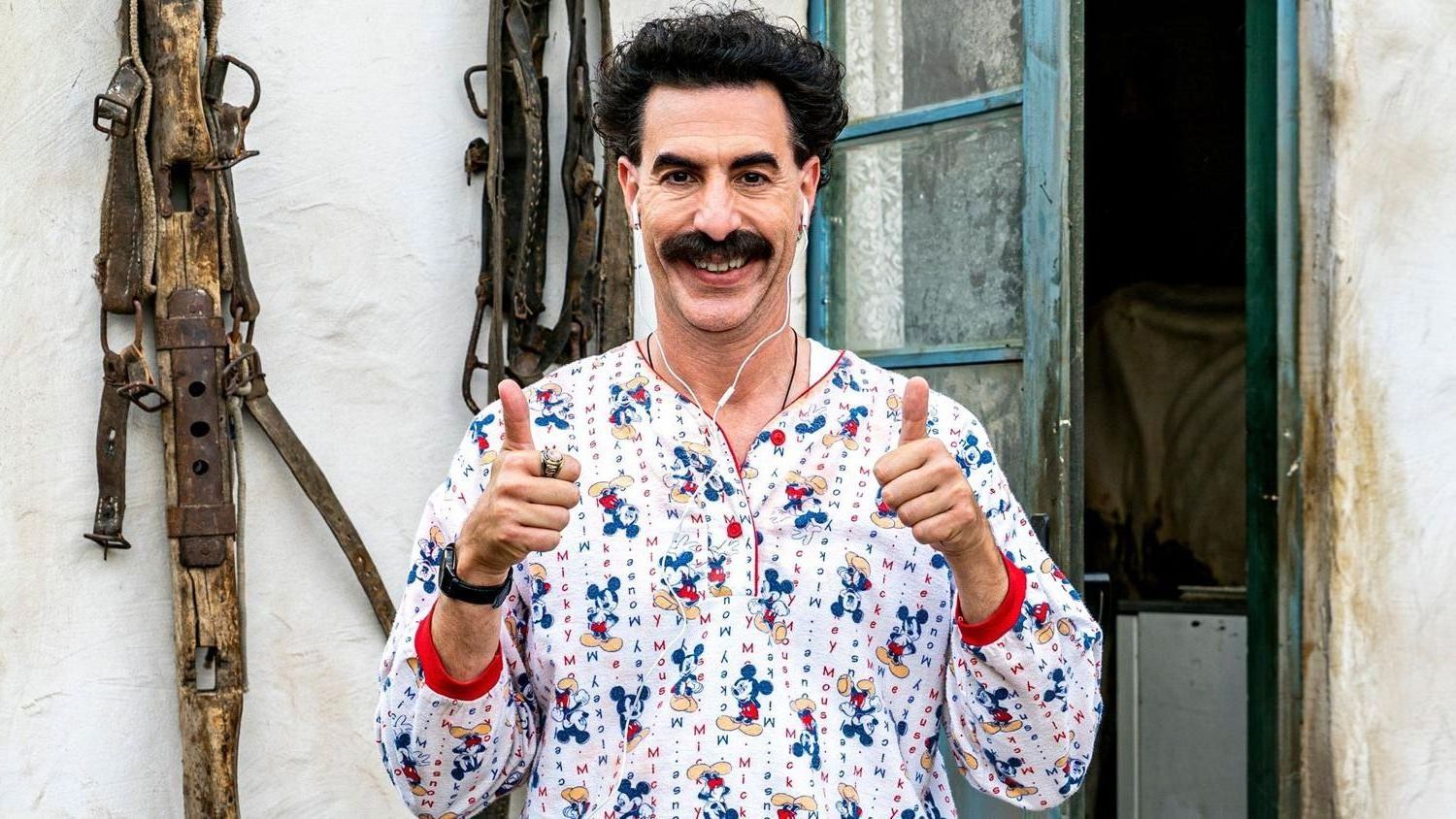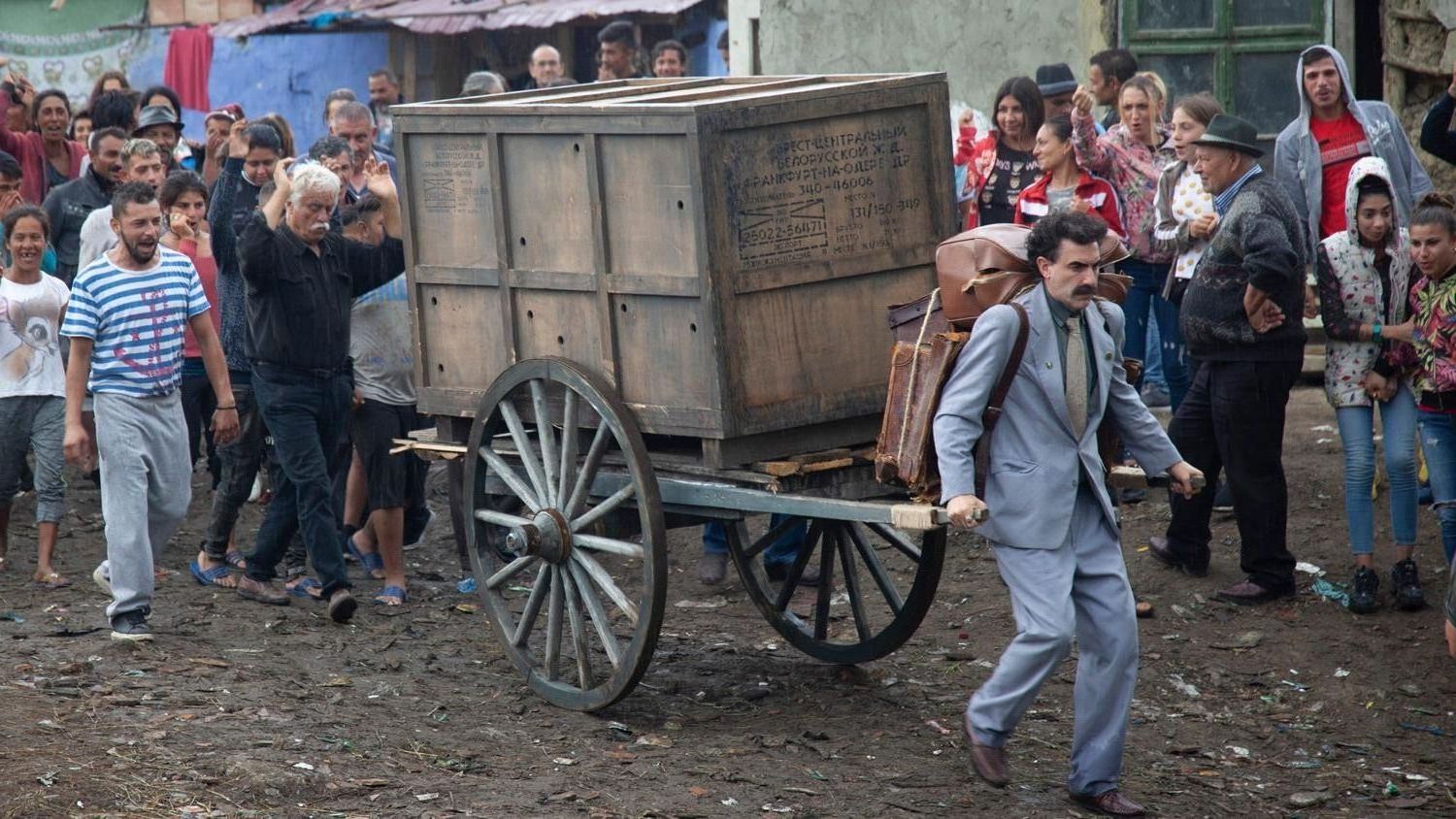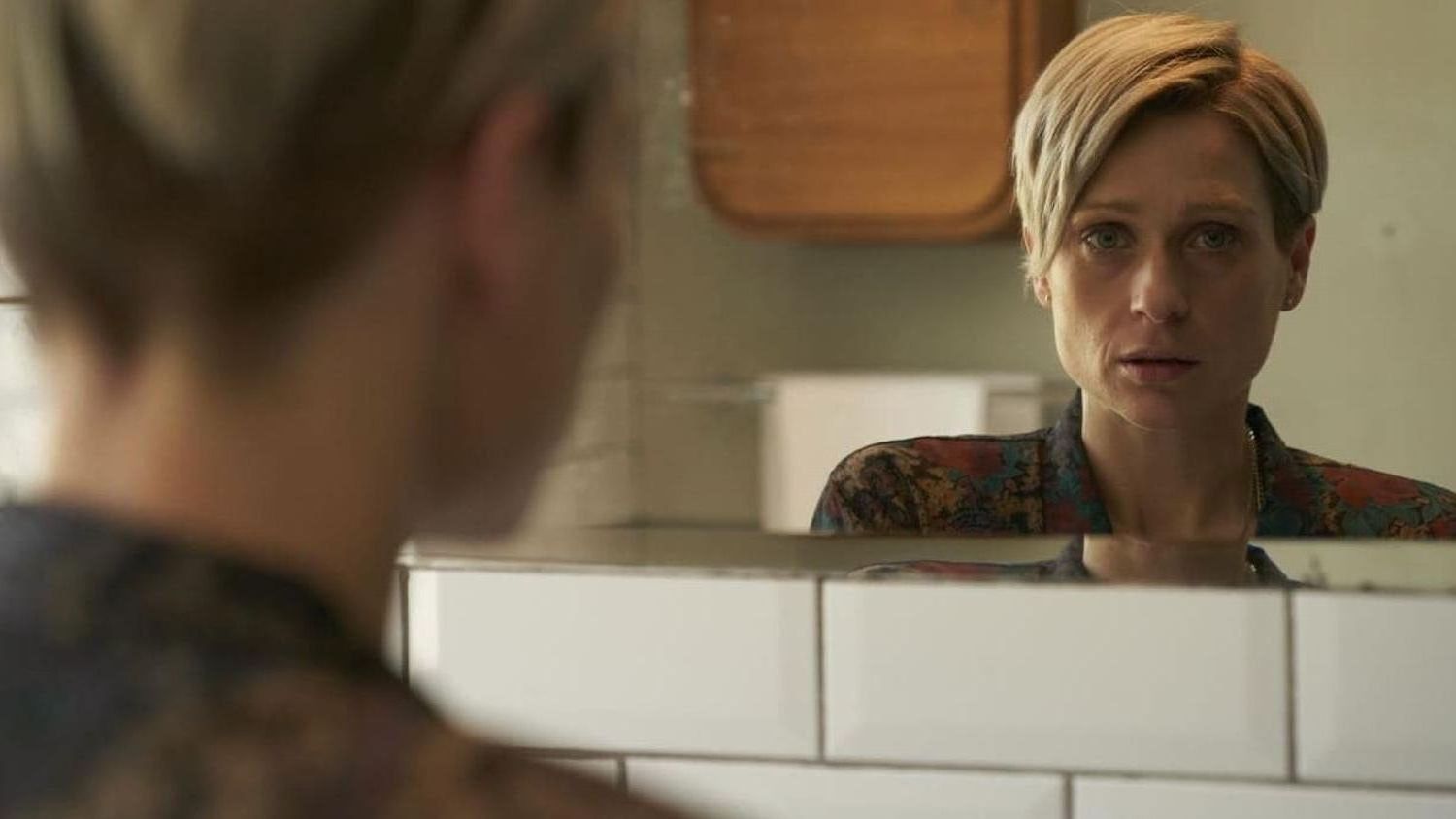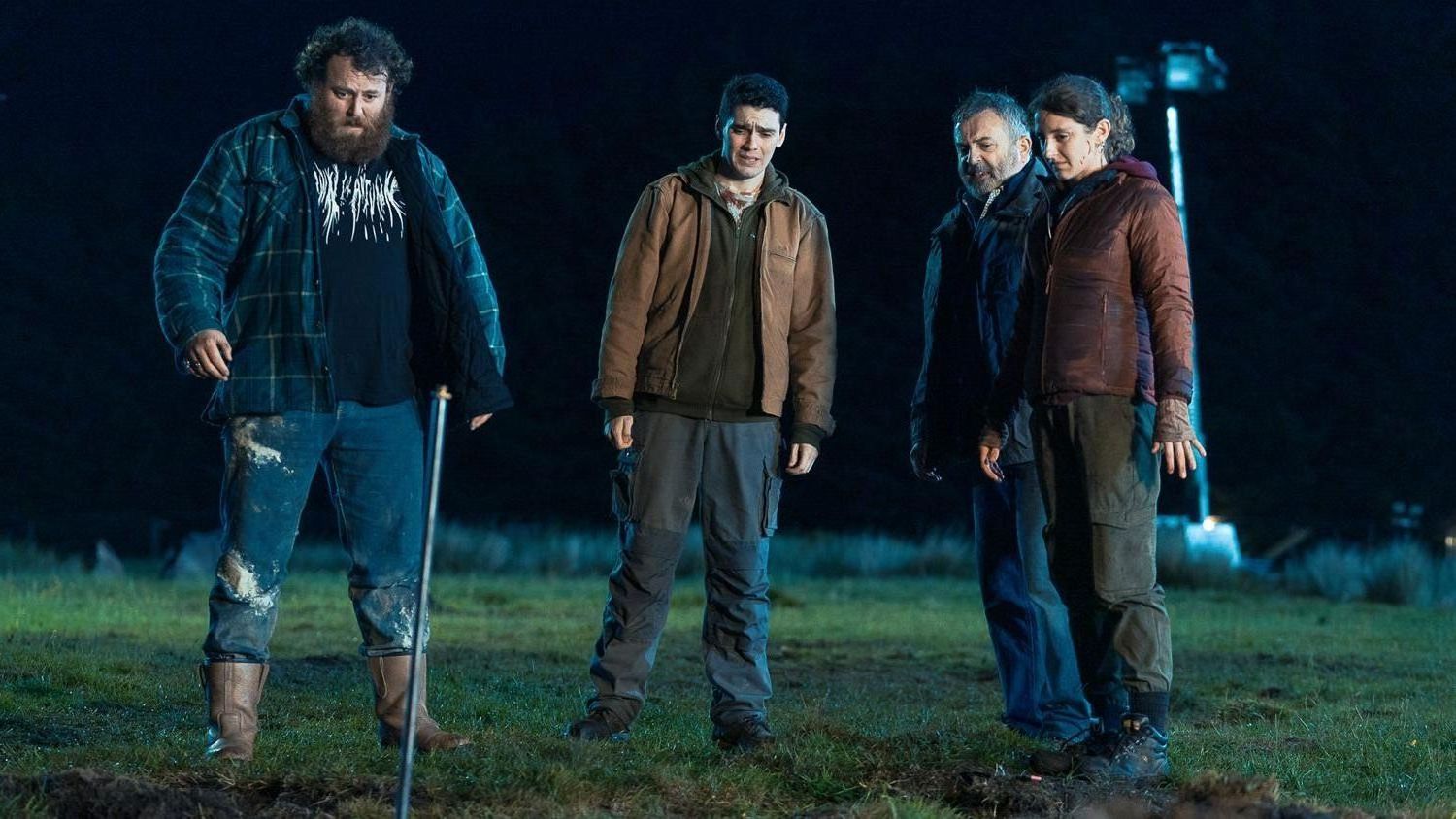
Borat Subsequent Moviefilm Review Movie
Borat Subsequent Moviefilm Review
There was a time that was a high point in the mid-2000s that you couldn't walk past someone foolishly puffing their chest, sporting an icy grin, and squealing into your ears: "Veery naaice!" Borat is so known for his endlessly frequent catchy phrases that it's easy to forget that the crazed film of 2006 practically created a genre called the narrative humor. By skewering the ugly underbelly of American culture , based on a ridiculous stereotypical image that portrayed Eastern European backwardness, Borat with the help of Alan Partridge's Peter Baynham and Joker's Todd Phillips made Sacha Baron Cohen's late night Channel 4 TV-sketch character into an authentic culture phenomenon that was as slyly humorous as it was slyly hilarious.

14 years later, and with Borat becoming an internationally acclaimed celebrity, the notion has to change. As the movie admits, it's tough to pull off a joke with everyone involved in the joke. Thus, Borat — having spent the last few years in the Kazakh prison for hard labour, because he was a sham to his nation — mainly is portrayed as a prankster in the sequel, but leaves some of the jokes for his child (or "non-male Son" according to his version of the term), Tutar, played by Bulgarian newcomer Maria Bakalova.
It's fascinating how it turns plates of absurdity and pulse-quickening shock tactics and sharp political comments.
The majority of the film's tricks are merely reused or modified. Like previously, Cohen delights in exposing the common ignorance of Americans for example, an Southern shopkeeper who kindly assists the hero in choosing the most effective tools to use for "murdering Gypsies" or the cake shop owner who is happy to write "Jews are not our replacements" in the icing. Sometimes, it's simply about getting rid of some tense feathers. For instance, in the rather bizarre "fertility dancing" performed by Borat and Tutar dance to the awestruck audience at a party at Macon, Georgia. Sometimes it's about getting the most cheap laugh such as the dick-pic that was which was faxed to an insignificant postal office manager.
Some stunts appear to be intended to be a way to get the attention of viewers. (Borat cuts hair of a man! Borat gets confused by phones! ) And one conversation with a real Holocaust survivor seems a bit untrue, but overall it's amazing how the film manages to pack in and can spin plates between outrageous crudeness as well as pulse-quickening shock tactics as well as a sharp political satire. Cohen's total confidence as a performer is remarkable -Cohen was often seen wearing an armored vest that was bulletproof to make the film, matched only by Bakalova's instant winning ability to improvise.
The film was released as an election-related release, and had an end-of-title card that urged viewers to vote and although the hilariously juvenile humor (choice quotation: "I can open a beer using the smoke hole in my lungs!") is unlikely to change the political climate or convince anyone who is unsure however, it is an appropriately messy, odd picture of a country caught that is in a distinct kind of chaos — an artistic expression of the weirdest year that could be imagined and told by the most bizarre possible writer. You might have heard in 2006"veery naaice!"

